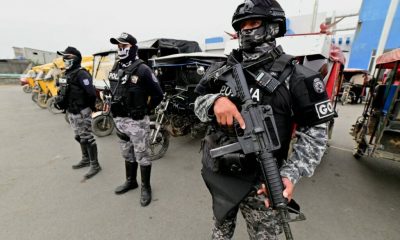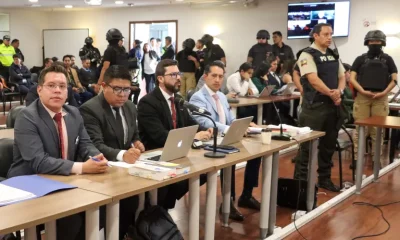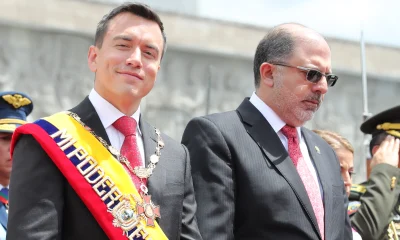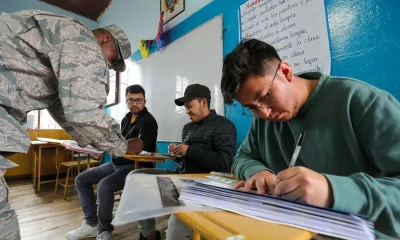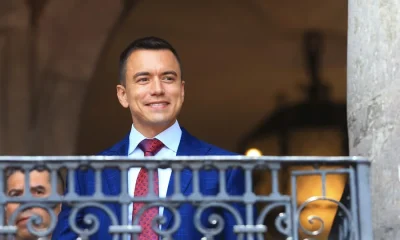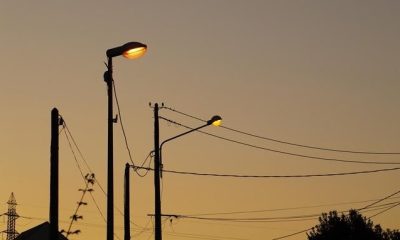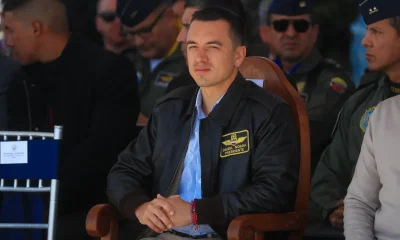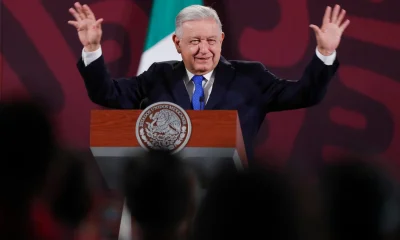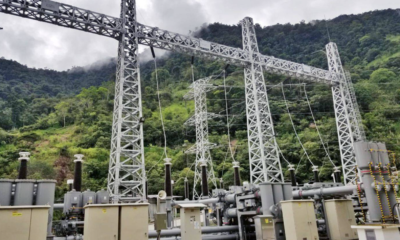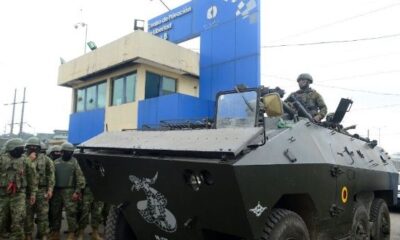International
Ola Bini, the computer scientist linked to Assange who will be five years old prosecuted in Ecuador
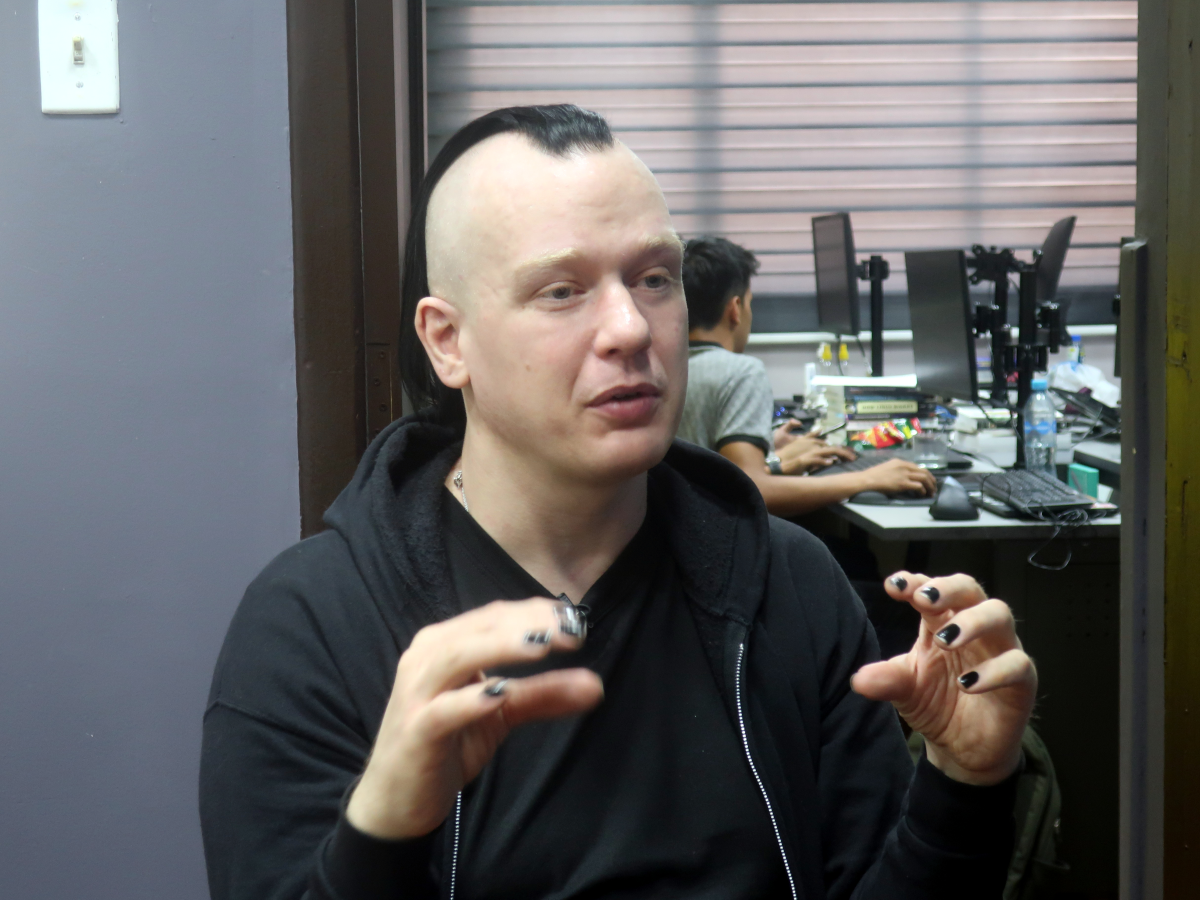
Ola Bini, the Swedish computer scientist and programmer who was arrested in 2019 in Ecuador and accused of an alleged cyber attack for links with the founder of WikiLeaks, Julian Assange, is on the way to five years prosecuted, without yet seeing the light of the tunnel, despite the fact that a court has already descised to continue the case for lack of evidence.
“This whole process is very frustrating. It has been frustrating for a long time and I still don’t see the end,” he explained in an interview with EFE Bini, who first spent 70 days in pretrial detention and since then is at large, but prevented from leaving the country and forced to report periodically to the authorities.
This has been the life of this now 41-year-old computer scientist in the last five years, who was 37 when he was arrested on April 11, 2019 before he took a flight to Japan, and whom the Government accused of improperly accessing databases of the National Telecommunications Company (CNT).
Bini recalled that it was the Government that linked him to Assange under the accusation of an alleged plot to destabilize the Executive after the eviction of the Australian from the Embassy of Ecuador in London, but emphasized that in the file of the Prosecutor’s Office there is no reference to him.
And despite the fact that in January 2023 a court ruled in favor of filing the process against him, the Prosecutor’s Office appealed the ruling and now it is going to be reviewed by another court that in 2019 already denied Bini the appeal to the pretrial detention order, so for the computer scientist it is not a guarantee of a fair ruling.
“They already have an opinion about my case. So, I do not expect an objective trial or without a conflict of interest, and that is what generates the most uncertainty: not knowing when all this is going to end,” said Bini, who if what he anticipates is fulfilled is already clear that he will appeal to the National Court of Justice, the supreme court.
The Swede commented that he has already had that same uncertainty for five years, that “it can end tomorrow or continue for five more years.”
“I try to have a social life and train to lower my stress a little, but everything is difficult,” lamented Bini, who now works at the Center for Digital Autonomy to promote the protection of personal data and free software, and tries to lead a normal life, despite the fact that he assures that he permanently feels the follow-up of undercover policemen.
“I don’t understand why they watch me in this way. I don’t understand if this is something they do with any (prosecuted) after five years of judicial process and after they have declared my innocence,” Bini said.
For the computer scientist, “Ecuador is experiencing a very complicated situation (with an ‘internal armed conflict’ declared since the beginning of the year against organized crime) and it is not explained that they spend resources to monitor it “when there are all these problems in the country.”
The court that must review the sentence that gave up continuing with the accusation against Bini has tried to set up the hearing on two occasions, but the first did not have an official Swedish translator and then the communication seemed to make it impossible to develop the exhibitions for the Nordic.
Bini emphasized that this hearing is due to the appeal filed by the Prosecutor’s Office, because CNT, which was the private accusation, did not do the same.
According to Bini, the only thing they presented as evidence against them is the alleged photograph of a screen where it is evident that there is no intrusion, because “a connection appears, then a warning and a request from a user and password, and then a ‘time out’ (time exceeded to comply with entering the required information).”
“In this case there was no intrusion because there was a warning, and then nothing happens,” reiterated Bini, for whom also “they had no records of firewalls or other (cybersecurity) systems of CNT,” because “they did not show anything else, and even the reports said that it is clear that there was no intrusion.”
Bini’s case is practically unprecedented in the country, so he and his lawyers have to do a lot of pedagogy with the judges so that they know computer terms and procedures that are familiar to them.
“I understand that these issues have not been discussed before. So, if I am convicted with this type of thing, almost all activities on the network were going to be crimes and that is very dangerous at the same time,” Bini warned.
“I would like to stay in Ecuador, because Ecuador is my home, but of course, I would like to be able to travel and visit my family and friends (in Sweden). So what I would like is just to continue working here and continue living here, but to have my freedom to be with my relatives as well,” he concluded.
International
Claudia Sheinbaum: Operation Against ‘El Mencho’ Was Based on Pending Arrest Warrants

Mexico’s President Claudia Sheinbaum on Wednesday rejected claims that the military operation that resulted in the death of Nemesio Oseguera Cervantes, known as “El Mencho,” leader of the Jalisco New Generation Cartel (CJNG), was carried out under pressure from the United States government.
Sheinbaum explained that the deployment of federal forces was aimed at executing outstanding arrest warrants against Oseguera Cervantes, who was considered one of the most wanted criminals in both Mexico and the United States.
“That was not the objective (to ease pressure from the United States). It is very important, and I want to repeat it. This individual had an arrest warrant, or several,” Sheinbaum said, referring to the operation conducted on February 22.
According to the president, the initial goal was to capture Oseguera Cervantes, but military forces responded after coming under attack during the intervention.
“The operation was to detain him. The problem is that they were attacked — the Secretariat of National Defense — and they responded at that moment,” she said.
The president insisted that the action was not carried out in response to external demands, although she acknowledged intelligence cooperation with the United States.
“It was not done in any way because of pressure from the United States, not at all. Of course, there was intelligence information from the United States that was used specifically,” she concluded.
International
Spain Denies Any Agreement to Cooperate with U.S. Military in Iran Operations
International
White House Says Spain Agrees to Cooperate with U.S. Military After Trump Threatens Trade Embargo

White House Press Secretary Karoline Leavitt said Wednesday that Spain has agreed “in recent hours” to cooperate with the U.S. military, following President Donald Trump’s threat to impose a trade embargo on Madrid.
Trump had warned of potential commercial measures after Spain reportedly refused to allow the Pentagon to use facilities at Spanish military bases for operations related to Iran.
“With respect to Spain, I think you heard the president’s message yesterday loud and clear, and I understand that in recent hours they have agreed to cooperate with the United States military,” Leavitt said during a press briefing.
She added that the U.S. military is currently coordinating with its counterparts in Spain. However, the president expects broader support.
“The president expects that all of Europe, all of our European allies, of course, will cooperate in this important mission — not only for the United States, but also for Europe,” Leavitt said.
Her remarks came in response to questions about Spain’s position and its role as a U.S. ally amid rising tensions surrounding operations involving Iran.
-

 International4 days ago
International4 days agoIran Reports 201 Dead, 747 Injured After U.S. and Israeli Strikes
-

 International3 days ago
International3 days agoBrazil’s Supreme Court Rejects Bolsonaro’s Bid for House Arrest
-

 International4 days ago
International4 days agoPope Leo XIV Urges End to ‘Spiral of Violence’ in Middle East
-

 International5 days ago
International5 days agoSecurity Council to Hold Emergency Meeting on Middle East Crisis
-

 International3 days ago
International3 days agoAnti-ICE Billboard Campaign Targets Immigration Spending in 31 U.S. Cities
-

 Sin categoría5 days ago
Sin categoría5 days agoTrump: ‘We Think It’s True’ Amid Claims Iran’s Supreme Leader Was Killed
-

 International2 days ago
International2 days agoSpain’s Prime Minister to Address Nation Amid Trump’s Trade Threats
-

 International3 days ago
International3 days agoTrump Warns of ‘Major Wave’ of Attacks as Iran Conflict Escalates
-

 International3 days ago
International3 days agoMexico Calls for Immediate Probe After National Dies in ICE Custody
-

 International15 hours ago
International15 hours agoWhite House Says Spain Agrees to Cooperate with U.S. Military After Trump Threatens Trade Embargo
-

 International3 days ago
International3 days agoBolivia Orders Three Investigations Into Deadly Military Plane Crash
-

 International15 hours ago
International15 hours agoSpain Denies Any Agreement to Cooperate with U.S. Military in Iran Operations
-

 International2 days ago
International2 days agoNew York Announces First 2,000 Seats in Universal 2-K Program
-

 Central America3 days ago
Central America3 days agoPanama Canal Monitoring Trade as Middle East Conflict Disrupts Shipping
-

 Central America15 hours ago
Central America15 hours agoNicaragua Held Responsible for Harassment of Opposition Prosecutor and His Family
-

 International2 days ago
International2 days agoWarner Bros. Developing First ‘Game of Thrones’ Movie With ‘Andor’ Writer
-

 Central America2 days ago
Central America2 days agoGuatemala’s Attorney General Fails in Bid for Top Court Seat Amid Corruption Allegations
-

 International15 hours ago
International15 hours agoClaudia Sheinbaum: Operation Against ‘El Mencho’ Was Based on Pending Arrest Warrants





























